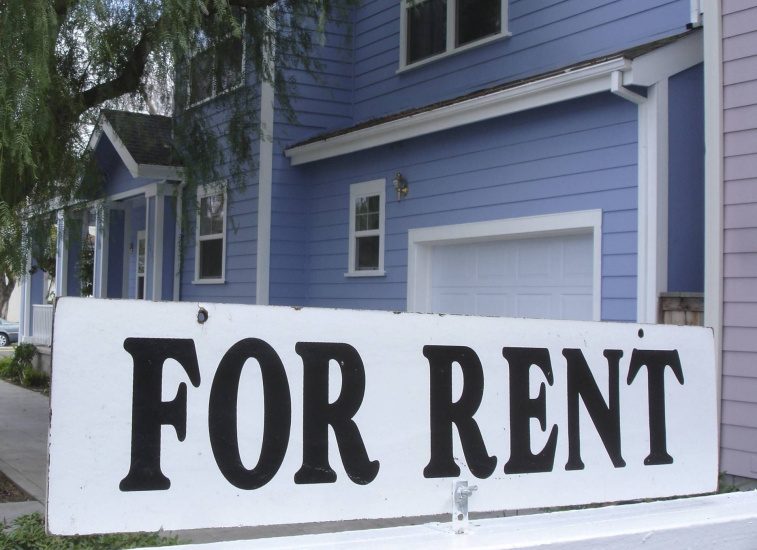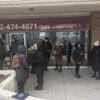
KJIPUKTUK (Halifax) – Who would have thought that a small province on the east coast of Canada would adopt so many discriminatory practices? With Nova Scotia’s population just under 1,000,000, how come there are always new stories of discrimination emerging?
In 2020, while Covid-19 persists, news media and social media report stories of (systemic) discrimination all too often. Black and Mi’kmaq communities have faced new and old challenges on a frequent basis. There has been violence motivated by race, fishery disputes and counter-protest against the Black Lives Matter and Indigenous Lives Matter movements.
Meanwhile, something that is not often talked about are tenancy disputes and discriminatory practices carried out by landlords here in Nova Scotia. This continues to be one of Nova Scotia’s best kept secrets.
There is an expectation that when applying for an apartment applicants will be approved or denied solely on their credit, references, financial position and other factors such as pets or whether you smoke. Instead they are judged on their race, ethnic or national origin, sexuality, gender, religion and age.
Several of the factors I list here are grounds of discrimination that are referenced in the Canadian Human Rights Act, under section 3 of the Act, as well as our own Nova Scotia Human Rights Act.
Although the Canadian Human Rights Act mainly deals with employment disputes, and tenancy disputes tend to be governed by the Nova Scotia Tenancy Act and handled by the Nova Scotia Tenancy Board, discrimination is still discrimination and the complexity and basis of the grounds remain unjustifiable in the eye of the law.
My experience
I am reminded of when I was looking for my first apartment in Halifax. I was young, and I was entering my second year of university at Saint Mary’s. My friend and I had applied to several apartments and had been approved. However, as I heard horror stories from other people about apartments in that area, we decided to continue our search. We came across this apartment building that appeared clean and had good units that were suitable for university students. The building manager was nice and friendly, and said she was going to put in a good word for us. So we applied.
Prior to getting approved for the apartment, we were asked for a co-signer, as I was not 19 at the time of applying and my friend had just turned 19. That was not a problem, and we got a co-signer for the apartment.
Following this, the building manager’s supervisor at head office requested our bank statements and proof of employment. At the time, I recall questioning why he needed our bank statements, as I thought it was fair to request proof of employment, but bank statements did not seem reasonable.
From there, things started to go downhill. I remember having a conversation with the man from head office, I asked why he wanted bank statements? His response was, “We take pride in our apartments and all our tenants are employed or retired, we don’t accept people on social assistance”. Then I knew that we were being stereotyped, as there was nothing in our application to suggest that either my friend or I were on social assistance. On the contrary, our pay stubs showed we were employed.
There has always been a stereotype that most Black people are on welfare and don’t contribute to society, which is an old white supremacist myth.
We were also told that because we were young and students, if there was one noise complaint we would be evicted.
International students: No support and a lack of awareness
I wonder if the public is aware that when international students of colour come to Nova Scotia, specifically Halifax, for education, that it is a common practice among landlords to request six-month’s worth of rent prior to moving in? As well, international students of colour are often subjected to terrible living conditions. Apartments infested with rodents, insects and structural damage.
Let me share a story of a young male student of colour who came to Canada in January of 2019 to further his education:
When he first came here, he stayed at an AirBnB for 18-days and was charged $750. The person who operated the Air BnB did not give him a key and it was not an actual unit, but merely an attic. He had to call the person who was also living in this AirBnB to unlock the door. As he had no other options, he stayed there until he could find an actual place to live. The owner of the Air BnB offered him to stay in the attic for a year at a reduced price of $600 a month, but he declined because it was an attic, and the ceiling was very low.
In February of 2019, he found a basement room that was more suitable. The downside was that since this was in a basement, the ceiling had pipes attached to it. At first, he did not see this as a problem, until the pipes started leaking. He requested multiple times for his landlord to fix the pipes, but it was always put off. After he put in several complaints to the landlord, the landlord started asking when he was moving out. As the pipes started leaking more and more, he decided to move out.
He told me that many other international students of colour face similar issues as his, and some experiences were way worse.
It becomes challenging to advocate for yourself as an international student because there are often language barriers, no support, accessibility issues and a lack of awareness about tenant rights, he said. “We are told to demand our rights”, but how can one demand rights that they are unaware of?”
Now, as he is finishing his master’s in biomedical engineering, and has become more accustomed to Nova Scotia and its discriminatory practices, he understands that this treatment is not acceptable, and taht landlord must be held accountable for this sort of treatment. They simply take advantage of vulnerable tenants and infringe on their rights.
As these stories continue to emerge, there is an expectation that the Nova Scotia Tenancy Board will do more to protect international students from bad landlords when coming to Nova Scotia.
Sexuality
Race, ethnic and national origin are often reasons for being denied tenancy. This month we witnessed a case of discrimination on the ground of sexuality when applying to an apartment. It came as a shock when I saw this story shared on Facebook. A young male same-sex couple were denied tenancy because of their sexual orientation. In the screenshot that was circulated through Facebook, the couple showed proof of being denied the apartment because they did not want to rent to two guys.
The picture becomes clearer every day to me, the Nova Scotia Tenancy Board as well as the Nova Scotia Human Rights Commission have an obligation to do more to fight against discrimination in tenancy.
Our only chance at fighting against these discriminatory practices is to encourage others to share their story and know that they are not alone.
Note: The Nova Scotia Human Rights Commission on its website provides more information about when and how actions that discriminate against people based on a protected characteristic are prohibited.
See also: Landlords flout the law while government looks the other way
With a special thanks to our generous donors who make publication of the Nova Scotia Advocate possible.
Subscribe to the Nova Scotia Advocate weekly digest and never miss an article again. It’s free!




Some landlords in the province of Nova Scotia accepts African Nova Scotians, and do not give them the same due consideration as that of others.
Quite iften when African Nova Scotians file compliants with the Residential Tendencies Board, their compliants are dismissed or fall on ears that are not activated.
Raymond Sheppard
Wow its terrible in Nova Scotia, The discrimination had gotten way worse during the pandemic Its gotten way out of hand, most people dont stand a chance of getting a place to live, when Enquiring about a place for rent off kijiji for instance The land lords some times ask what do u do for work right off the bat they want to know if your employed, Then the renter replies says I am currently unemployed Right then and there there are slim chances of getting considered for the place, Human Rights is useless what can they do nothing, Canadian Human Rights is a joke especially in NS People are being discriminated against for not having a job now